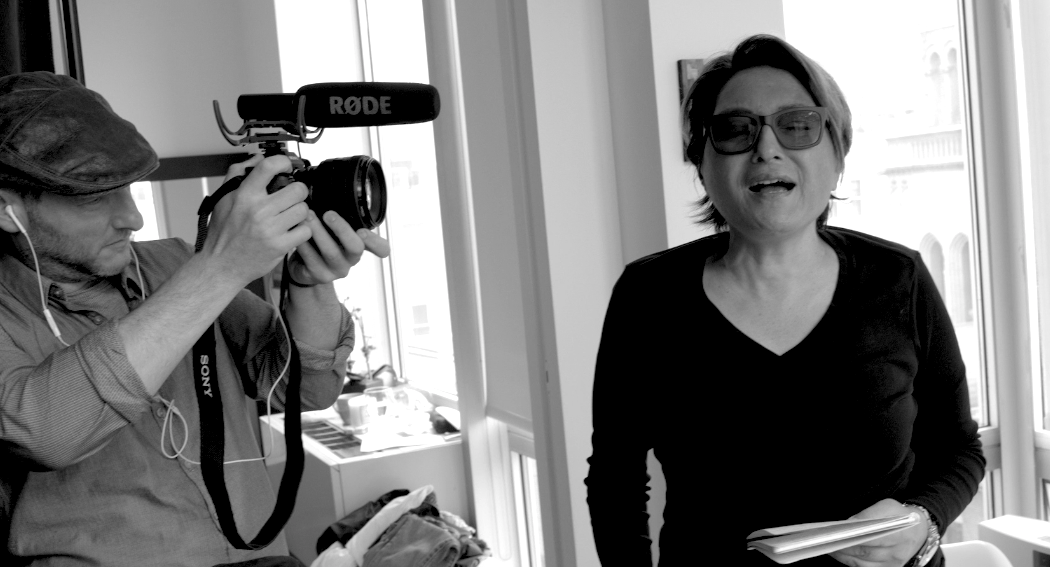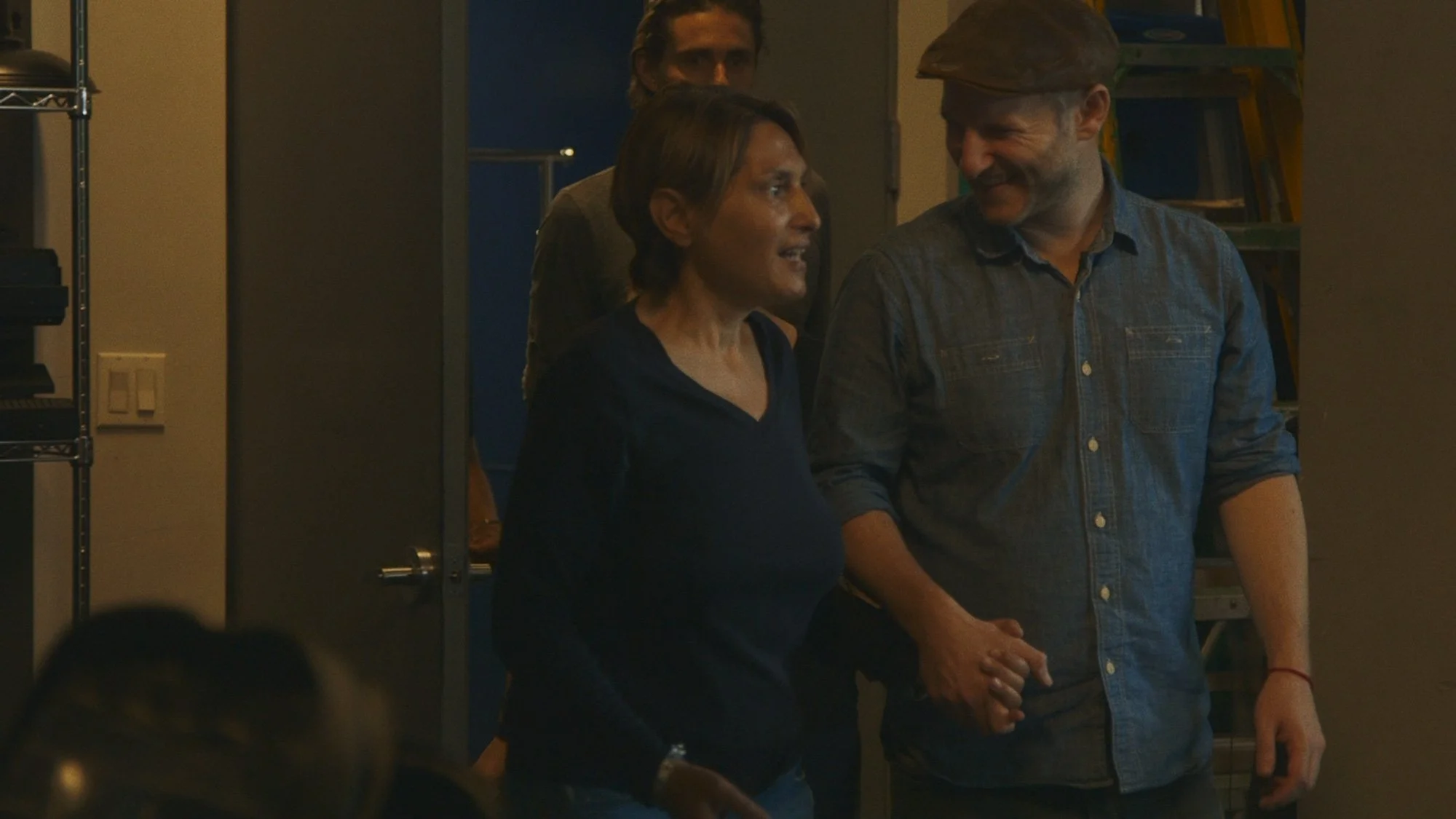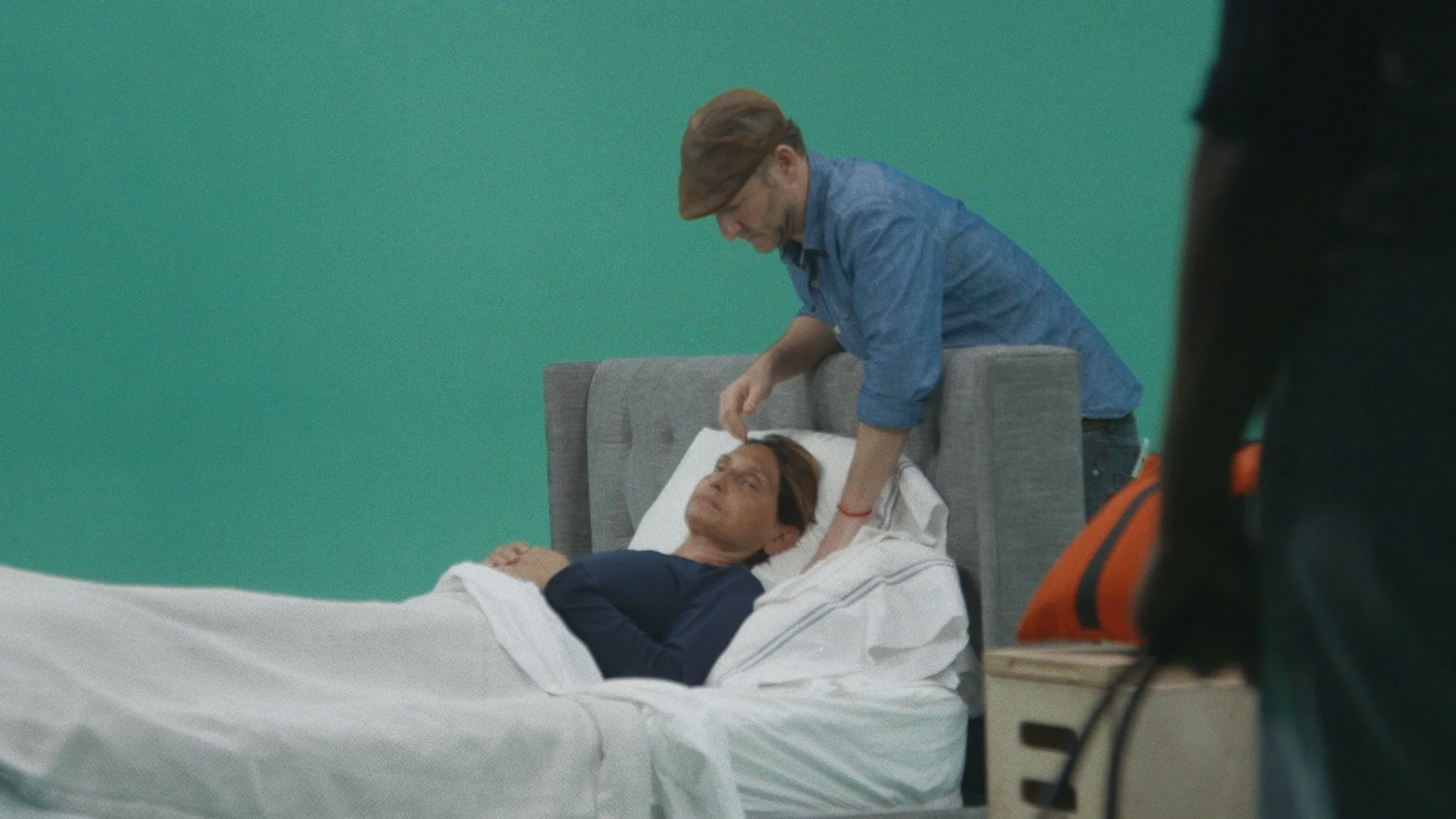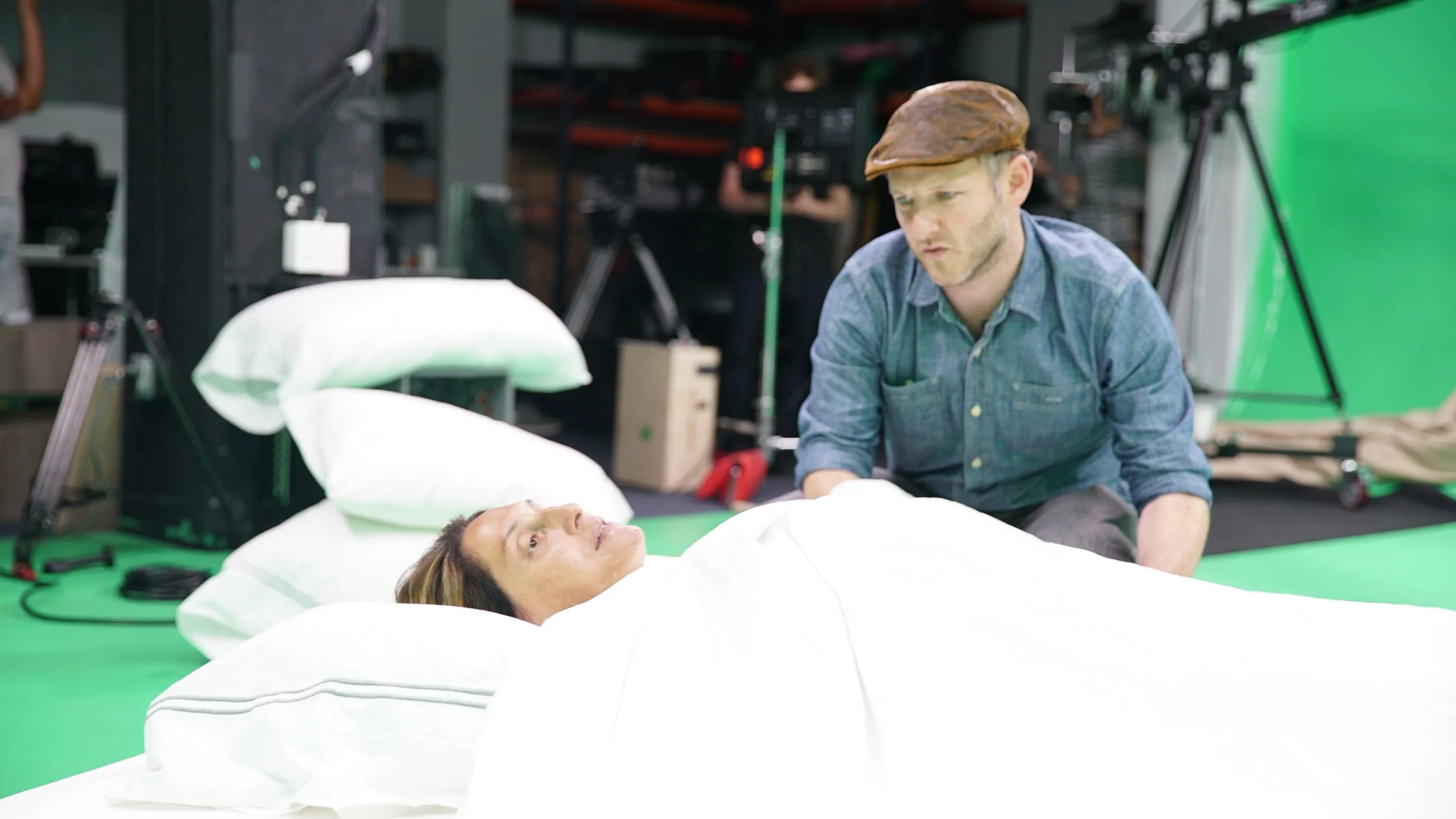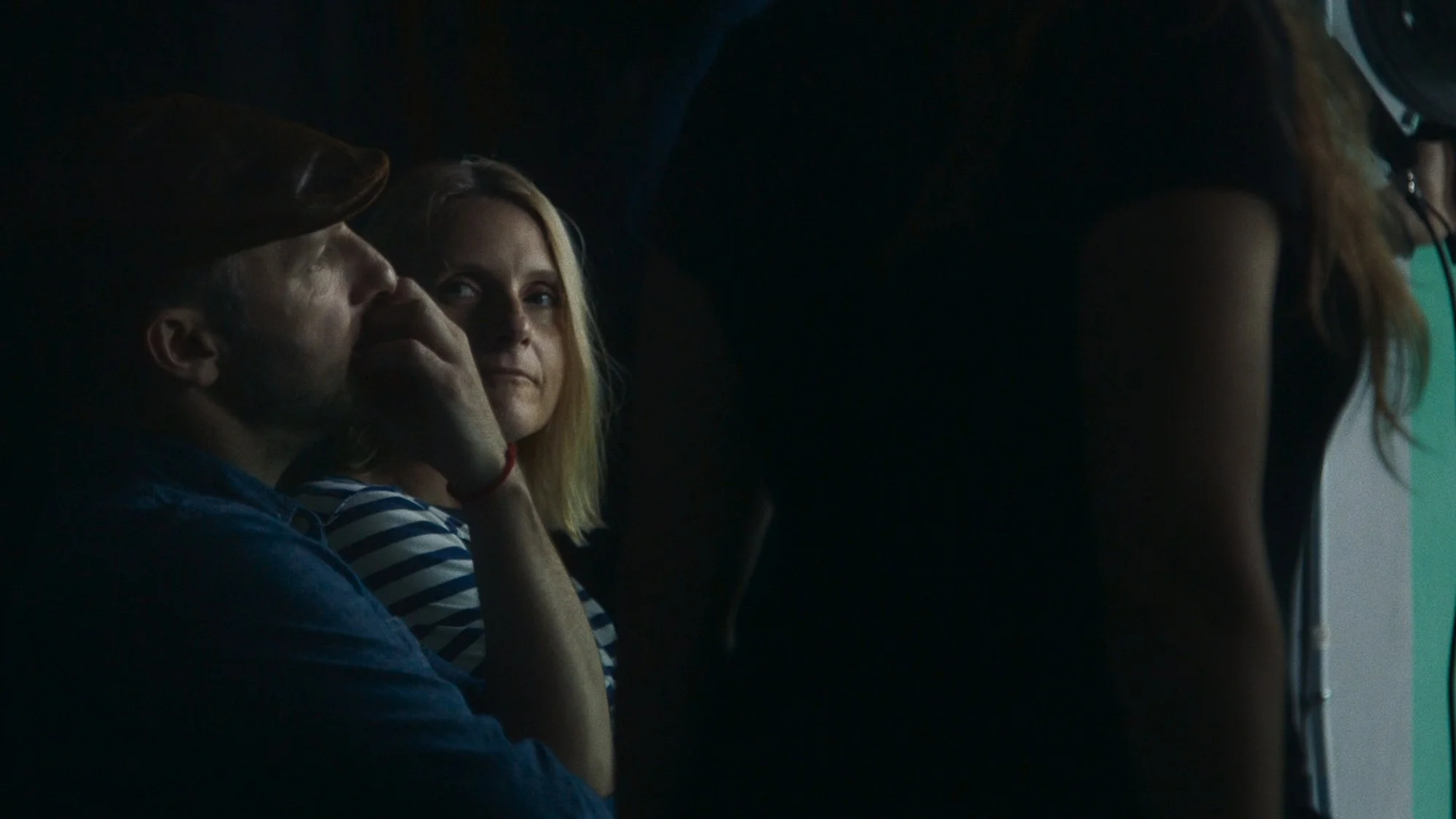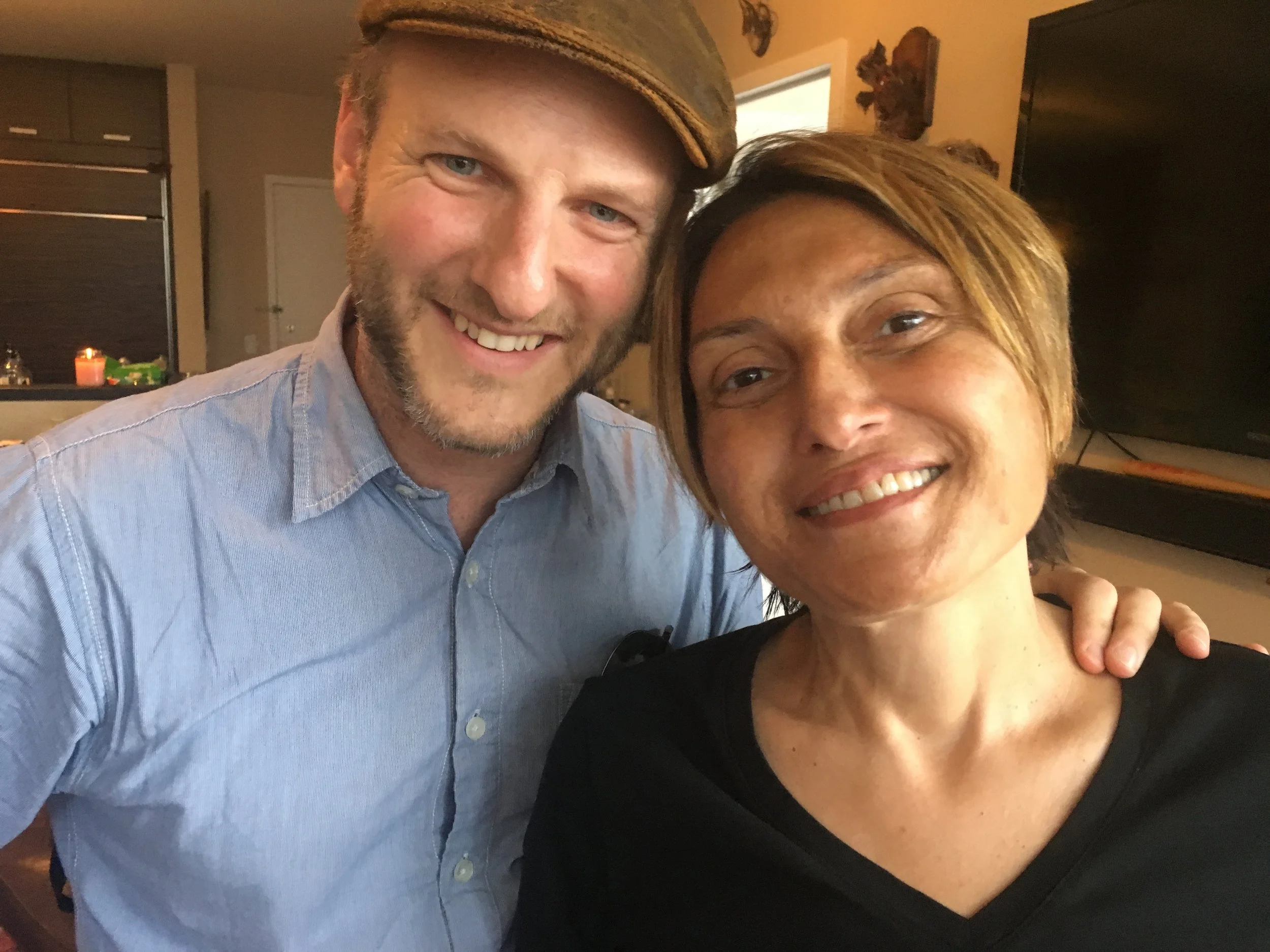HERE I AM: A Love Letter to Life, Creativity, and Letting Go
The Beginning
I first met Rayya Elias backstage in San Francisco, where I was speaking at the Dreamforce Conference, while launching my last film, Walk With Me. Amidst the post-screening buzz, I noticed a striking woman leaning against the wall, eyes locked onto me—not with admiration, but curiosity.
“Hey! I’m Rayya,” she said, stepping forward. “So…what are you doing next?”
There was a spark in her—something raw, magnetic, and alive with mischief. I smiled and said, “I’m looking for people who are dying… to tell a story about what it means to live.”
She didn’t flinch. “Well, dude,” she said matter-of-factly, “I’m dying of terminal cancer. Film me.”
I was caught off guard. “I’m sorry to hear that,” I said quietly. “Do you have a prognosis?”
“Eighteen months”, she said.
Still absorbing the gravity of her words, I asked, “So what brings you here?”
She smirked. “I’m here with Liz—Elizabeth Gilbert. She’s my partner. She’s a speaker too.”
I glanced across the room and spotted Liz surrounded by a crowd of admirers. Trying not to sound too forward, I asked, “Would you be open to consider being part of the film?”
Without hesitation, Rayya said, “Sure, dude. Come to New York. We’ll talk about it.”
A month later, I found myself in her East Village penthouse she shared with Liz. It was a vibrant, lived-in space—shelves filled with books, walls full of art, and a piano, keyboard, and guitar sitting in the lounge like old friends. Rayya poured me a glass of whiskey, sat down across from me, and lit a cigarette. Sleeping next to her was Chunky—her white, purebred French bulldog.
She didn’t waste time.
“If we’re gonna do this,” she said, eyes steady, “there are some rules you need to follow.”
She held up one finger. “First, don’t be late. Ever. Actually, get here five minutes early. I don’t like people who don’t respect punctuality. It really fucks me off.”
Then another. “Second, I’m really sensitive to smells. You gotta smell goooood, always. I can’t stand people who smell bad. It’s a deal-breaker.”
And then she smiled, leaned back, and tapped a third finger. “Last, when your hair gets long—I’m the one who cuts it. That’s non-negotiable. It’s my thing.”
These weren’t just quirky demands. They were her way of setting the tone—testing if I was serious, if I could be trusted. The access she was offering wasn’t casual. It came with conditions. Her time, her energy, her vulnerability—those things had to be earned. She was inviting me into the most intimate and uncertain chapter of her life, and I had to meet her on her terms.
“That’s the scoop, yo,” she said with a smirk. “If you can handle that, we’re good.”
And I knew—if I stuck to her three rules, she’d let me in. Not just into the room, but into the story. Way beyond her last breath.
Creativity
What began as a documentary became something else entirely: a meditation on love, grief, creativity, addiction, legacy and finding freedom.
Over the next 12 months, I followed Rayya and Liz with my camera through the final year of her life; on their holiday to Florida, Rayya’s last birthday celebration, their wedding-slash-commitment ceremony, hospital appointments and chemotherapy waiting rooms, side stage at Liz’s public talks, and in recording studios as Rayya laid down her final tracks.
We became very close. The lines blurred between filmmaker and subject, between witness and friend. I was no longer just documenting their story—I was inside it. I was there in their bedroom in the early hours of the morning—next to the sheets still warm from grief and longing. I shared meals, cigarettes on the balcony, and house parties with friends.
Many times I didn’t film, putting down the camera just to sit with the silence. It stopped being about making a film, and became something else entirely: a deep, human entanglement with life, death, and the fierce beauty of what it means to show up for each other, even when everything is falling apart.
Rayya and Liz opened themselves up to me with an honesty that was both electrifying and excruciating. Their love was fierce, full of devotion and defiance. Liz had left her marriage to be with Rayya—not to chase a fantasy, but because death had brought her face to face with truth. “If I didn’t tell Rayya how I really felt,” she once said, “it would have been the greatest tragedy of my life.”
Love & Addiction
Love doesn’t protect us from grief. If anything, it deepens it.
Their love had a rhythm all on its own—private, raw, immersive. At first, it seemed endearing, even enviable. But as the months passed, I began to sense that their bubble, as beautiful as it was, also functioned as a kind of escape. They shut the world out. And I wondered if part of what they called love was also a form of addiction—an intensity that made everything else disappear.
And then came the unraveling.
As Rayya’s diagnosis settled in, silence began to take up space where laughter had once lived. The bathroom floor became an altar. Pills lined up like prayers. And Liz—who had once been only the lover—suddenly became the caregiver, trying to hold everything together as the person she loved slipped slowly away.
But at first it wasn’t the growing cancer but a mis-diagnosis that invited emergency palliative care filled with a cocktail of opioids—fentanyl, morphine, codeine, and oxycodone amongst thirty other medications.
The painkillers dulled more than just the physical agony—they dulled her clarity, her fire, her soul. And in that haze, old ghosts returned. The beast she had long buried—addiction—came back.
Rayya was no stranger to addiction. Her history with heroin was long and brutal. She’d been clean for twenty years. She had promised herself she would die clean. But now that promise was slipping through her fingers - the very substances that once destroyed her began returning to her life disguised as medicine.
And then she added cocaine. It started quietly, covertly. She lied to herself. Then to Liz. Hiding the wrappers. Hiding the lines. Hiding the truth.
There was shame in that. So much shame. The shame was brutal. The kind that doesn’t yell, but whispers—you failed at the one thing that mattered: your freedom.
Grief
I watched them begin to fracture under the weight of what couldn’t be fixed. I saw Liz lose sleep, grow thin with worry. I saw Rayya grow distant, angry, pushing Liz away even as she needed her most. Grief isn’t tidy. It doesn’t follow a schedule or ask for permission. It creeps in, uninvited, settling into the cracks of daily life like a ghost that refuses to leave.
Rayya wanted the world to see her as a creative force, not a dying addict. She poured everything she had left into her final show, A Night with Rayya Elias. It wasn’t just a performance—it was her legacy, her proof that she had mattered. That she had something to say before the curtain fell. But her voice broke —the show was canceled, and then, she lost her will.
She broke up with Liz. It was sudden, but not entirely surprising. Something had been shifting for months—beneath the surface of devotion was a growing storm of exhaustion, fear, and unmet needs. Rayya told me she needed space. She wanted to face the end on her own terms, without the pressure of performing or caretaking anyone else’s heartbreak.
Liz was devastated. Raging and broken. Everything that she thought she was in that moment dissolved. But she respected Rayya’s choice. And in a strange, painful way, the breakup became another act of love—an unbinding in the face of the inevitable.
Finding Freedom
Rayya’s anger turned inward and outward. She raged at her body. At the system that fed her more pills than hope. At herself. And yet, even in that spiral, something in her refused to give up.
Liberation didn’t arrive like a victory parade. It came in fragments—quiet, messy, sacred. She faced herself. She forgave herself. She chose to try again.
She moved back to Detroit to be with her family and oldest friends, and she got clean. She kicked her entire prescription down to one - morphine, and spoke the words of gratitude that had waited for too long in her throat.
She picked up her guitar and recorded a final song, and when the last track was laid down, she smiled. It wasn’t perfect. But it was true.
Legacy
I often wondered what motivated Rayya to let me film. Was it courage? Was it art? Or was it, in part, a fear of being forgotten—a desire to have the fame she never quite reached in life? Maybe it was all of those things.
What I know for sure is this: Rayya lived her final months as fiercely as anyone I’ve ever known. She chased beauty, chased truth, chased music, chased meaning. Even as her body betrayed her, she kept creating.
And I kept filming, bearing witness.
In her final days, Rayya found peace.
She drank a whisky. She lay still and watched the light shift across the ceiling. She laughed with her sister, her closest friends, and held Liz’s hand. And then—she let go. On her own terms. In her best friend's home. With her people. With her music.
I watched her story transform—not just her own life, but all of ours.
What began as a film about dying became something much deeper: a meditation on what it means to live.
Rayya taught me that death is not an ending. It’s a final act of expression, and a transformation.
My film is not a eulogy. It’s a love letter to courage, to imperfection, to the kind of creativity that won’t go quietly.
I still hear her voice every day - in her songs. In the pauses between my thoughts. I miss her.
And in the silence I hear a whisper that never fades—
Here I Am.
HERE I AM is due for release in 2026. Subscribe here to stay updated and be the first to know about screenings, festivals, and how to watch.
“I am so grateful for the existence of this powerful and unflinching chronicle. And I know that Rayya, who loved the truth more than anyone I have ever met, would have loved it, too. She wanted her death to be a work of art, and so it is. — Elizabeth Gilbert
ALL THE WAY TO THE RIVER - Elizabeth Gilbert’s upcoming book, flows beside the film as a companion piece—two tributaries leading to the same sacred sea. Out in September 2025—its a raw, luminous memoir chronicling her final year with Rayya. It’s a story about devotion, loss, and the fierce beauty of choosing love even when time is running out. Honest, soul-baring, and tender, the book.

